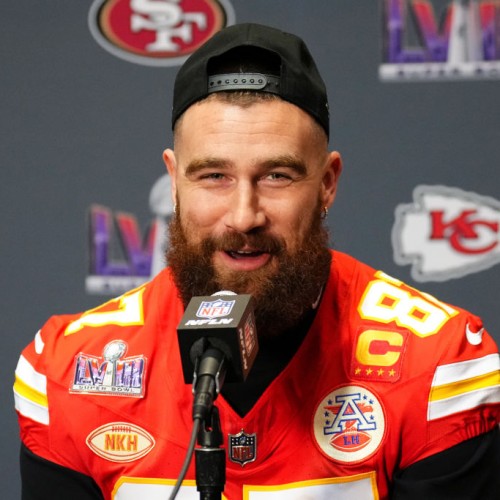Super Bowl Influence: 5 Times The Big Game Actually Changed The World
The Super Bowl: It's an American tradition. And this Sunday marks half a century of the largest sporting event in the world. It's also consistently one of the most viewed television broadcasts, with more people watching last year's game than any other live TV event in United States history. And while on the surface it's a game, the Super Bowl is massively influential on the culture at large. In fact, it's changed the world more than once.
Here are five Super Bowls that transformed society:
Super Bowl III Created "The Super Bowl"
The Super Bowl came about due to the formation of the American Football League in the early 1960s. Even though it was often written off as lesser than the National Football League, the AFL managed to become a serious rival and the two eventually agreed to merge, with a plan for their championship teams to face off each year until the first merged season in 1970. The first two AFL-NFL championship games were resounding losses for the AFL teams and only reinforced the view that the NFL teams and players were better. That all changed when Joe Namath led the Jets to a stunning victory over the favored Colts in 1969. Considered one of the biggest upsets in sports history, it proved that the AFL players were just as good as the NFL players and was also the first time the game was officially called the Super Bowl.
Super Bowl XXII Broke A Racial Barrier In Sports
Sports and moments of racial equality go back a long way. Think Jesse Owens and Jackie Robinson. And football use to hold one of the last racial prejudices in sports. As Greg Howard at Deadspin explains, "it was always thought that blacks couldn't be quarterbacks, that they lacked the intelligence and charisma to lead a team." It's misconception that was proven false in 1988's game, when the Redskins' Doug Williams became the first black quarterback to play and win a Super Bowl. He was also the first black player to be named Super Bowl MVP.
Super Bowl XVIII Fueled The Personal Computer Revolution
Arguably the best and most famous Super Bowl commercial of all time, Apple Computer's "1984" introduced the company and its iconic Macintosh computer to the wider world. Directed by Ridley Scott, the commercial was the big story of the game, is credited with generating over $3 million worth of sales in the following month and influenced Super Bowl ads for years to come. It was the first big victory for what would go on to become the world's largest tech company and would drives a lot of techs biggest innovations through its products that we know and love today.
Super Bowl XXXVII Changed How We Watch TV
Janet Jackson's nipple. That's first thing that anyone who watched the Super Bowl in 2004 will say about the game. Not who played or won (it was the Panthers vs. the Patriots and the Patriots won, by the way), just the "wardrobe malfunction" of Justin Timberlake exposing Jackson's nipple during the halftime show. And while the scandal pretty much killed Jackson's career, it may have had a positive effect. There's an argument that our current golden age of television was partially the result of Nipplegate. The moment was huge and talked about by everyone, but the technology of the early days of the oughts made it really hard to see the clip after it aired. The frustration at not being able to find the footage online was one of the inspirations for YouTube. Additionally, still young TiVo saw a massive uptick in subscribers immediately afterwards (finally having something to rewind to and watch probably convinced many to sign up). The rise of both technological advancements, online video and digitally recorded TV, were integral in television reaching its current "golden age."
Super Bowl XLII Solidified Barack Obama's Presidential Nomination
- @POTUS press conference today in one @vine -> https://t.co/rKB257fzqu
— Charlie Spiering (@charliespiering) February 5, 2016
In 2008, Barack Obama was a first term senator trying to win the Democratic party nomination and it looked like he was losing to Hillary Clinton. Polling showed Clinton in the lead and at that point she'd picked up more delegates in the primaries. But then, just days before Super Tuesday, people all over the country gathered together to watch the Super Bowl and according to USC professor David Logan, who polled Super Bowl parties that year, many people discussed Obama and essential reached a tribal consensus that Obama was the better candidate for the nomination. The rest, including two terms in the White House, is history.








